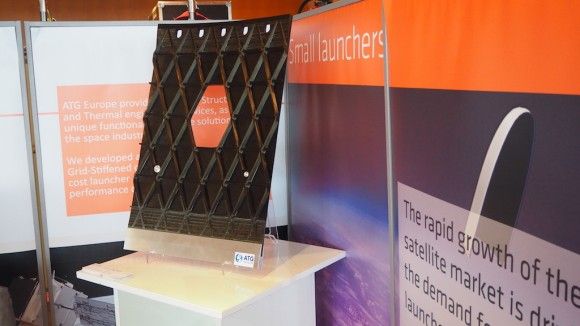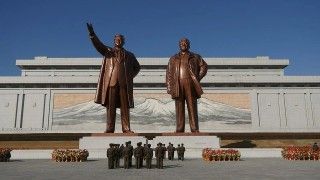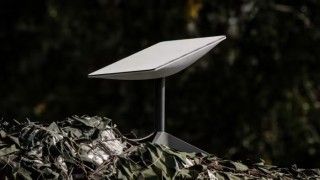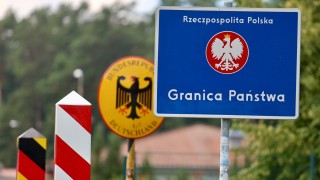- WIADOMOŚCI
Siemoniak: NATO Needs To Increase Its Capabilities Within The Scope Of “Conventional Deterrence”
During his visit to Washington, Polish Minister of Defence, Tomasz Siemoniak stated that Poland wants changes in the structure of the NATO alliance, so that it would react better to the emerging threats, to be introduced during the Warsaw NATO Summit which is scheduled to take place next year.
Minister Siemoniak’s speech took place at the Centre for Strategic and International Studies. The main point of his speech was to introduce the Poland’s proposition, referred to as the “Warsaw Initiative of Strategic Adaptation”.
- The fact that we’ve decided to become the hosts of the 2016 NATO Summit stems from our deepest belief that there is a need of creating the “new” NATO alliance from a scratch, that there is a great need for a strategic adaptation of the alliance. (…) - We would like the Warsaw summit to initiate yet another stage of strategic cooperation within the NATO structures. Its main goal should be to bolster all of the alliance’s forces, due to the fact that, so far, the reinforcing procedures have been focused solely on the quick reaction elements. A transformation of the NATO’s structural profile is required – not only would it provide the alliance with an option of reacting at a level of a brigade-sized element (3-6 thousand soldiers), but also at a level of division-sized (5-15 thousand soldiers) and corps-sized (15-45 thousand soldiers) units.
Tomasz Siemioniak’s opinion is that “worsened situation, within the area of security, particularly within the region of the NATO’s eastern flank, is of permanent character”. Thus Poland is willing to prepare NATO to function in this new, transformed geopolitical context. Siemoniak noted that a large portion of the European armed forces is getting ready to carry out peacekeeping operations. In the current situation, development of the “heavy” elements is also quite desirable, particularly when it comes to the conventional land forces. Minister of Defence called for a transformation of the current NATO rotational presence in the Mid-Eastern Europe, not without exclusion of the US Army. Siemoniak demands the rotational activity to be transformed into a permanent presence of the military units, indicating Poland as one of the most important partners within the scope of the military cooperation.
Siemoniak claims that capabilities of “conventional deterrence” should also be expanded. Moreover, the Polish Minister of Defence would like the joint NATO funds to be increased, in order to develop the “defensive infrastructure that would make it possible, particularly for the NATO eastern flank member states, to host the allier reinforcements”. Tomasz Siemoniak also noted that there is a great need of expanding the capabilities of the armed forces of the individual NATO member states. The development process shall not be focused solely on the elements which are deployed to be a part of the NATO quick reaction forces. Siemoniak additionally indicated the fact, that the changes in the security situation within the Mid-Eastern European region stem from the aggressive policy pursued by the Russian Federation. All that is amplified by the process in which Moscow expands its defensive capabilities and deploys significant forces close to the NATO border.
The changes which are proposed by the Polish Minister of Defence, in line with the presented concept, are to be implemented during the Warsaw NATO Summit which is scheduled to happen in 2016, but the plan needs to be treated as a follow-up of the decisions made during the Newport summit. The North Atlantic Treaty Organisation undertook a resolution to support the countries located at its eastern flank (inter alia, through maintaining rotational presence, increased number of exercises). However, the main point of the new concept is to make a transition from assurance to deterrence. The main aim of this change is to achieve a high level of reaction capabilities, which would make it possible to react to a wide spectrum of potential threats, including a full-scale, conventional invasion.
After his speech, Minister Siemoniak also stated that “the alliance cannot be hampered in its activity, particularly the activity which is directly related to the safety of its members. (…) I think that wariness and caution undertaken by some of the European allies is excessive”. This Siemoniak’s statement addressed the remark of the debate moderator, who stated that the proposed development of the defensive infrastructure and permanent deployment of the allied forces within the territory of the NATO eastern member states could constitute an action which would be interpreted as not keeping the promise made to Russia, back in 1997. NATO leadership decided then not to maintain permanent military presence within the territories of the new member states, who joined the structure of the alliance. Deputy Prime Minister Siemoniak stated that it was Russia who broke the deal made with NATO first.
When asked about the statement made by the chief of the European Commission, Jean Claude Juncker, who stated that a European Army needs to be created, Siemoniak stated that this statement should be treated as an “abstract digression”. Implementation of that plan would take many years. The Polish Minister of Defence also added, that “frankly speaking, I do not know whether that [i.e. the European Army mentioned above] would not constitute a duplication of what is at NATO’s disposal at the moment (…). It is NATO which should be treated as the key to the European security”. Siemoniak additionally stated that, according to the initial concept, drawn up at the beginning of the Cold War, the European Army was to act under the jurisdiction of the Chief Commander of the Allied Forces in Europe.
Minister confirmed the fact that Poland expects that the changed situation in the European security context shall be an impulse for adopting the new European security strategy during the European Union Summit, which is scheduled to happen in June, and which is going to cover the defence and security issues. “The former strategy was drawn up back in 2003 – and it comes from an entirely different period, historically”.
According to the Polish Deputy Prime Minister Siemoniak, Poland deeply hopes that the EU summit would create a breakthrough, along with specific commitments and decisions, including decisions related to the EU combat groups. “These things do not have to be significant, however, the EU shall have 1000 soldiers at its disposal, who would be able to be deployed in any part of the world, immediately”.
















